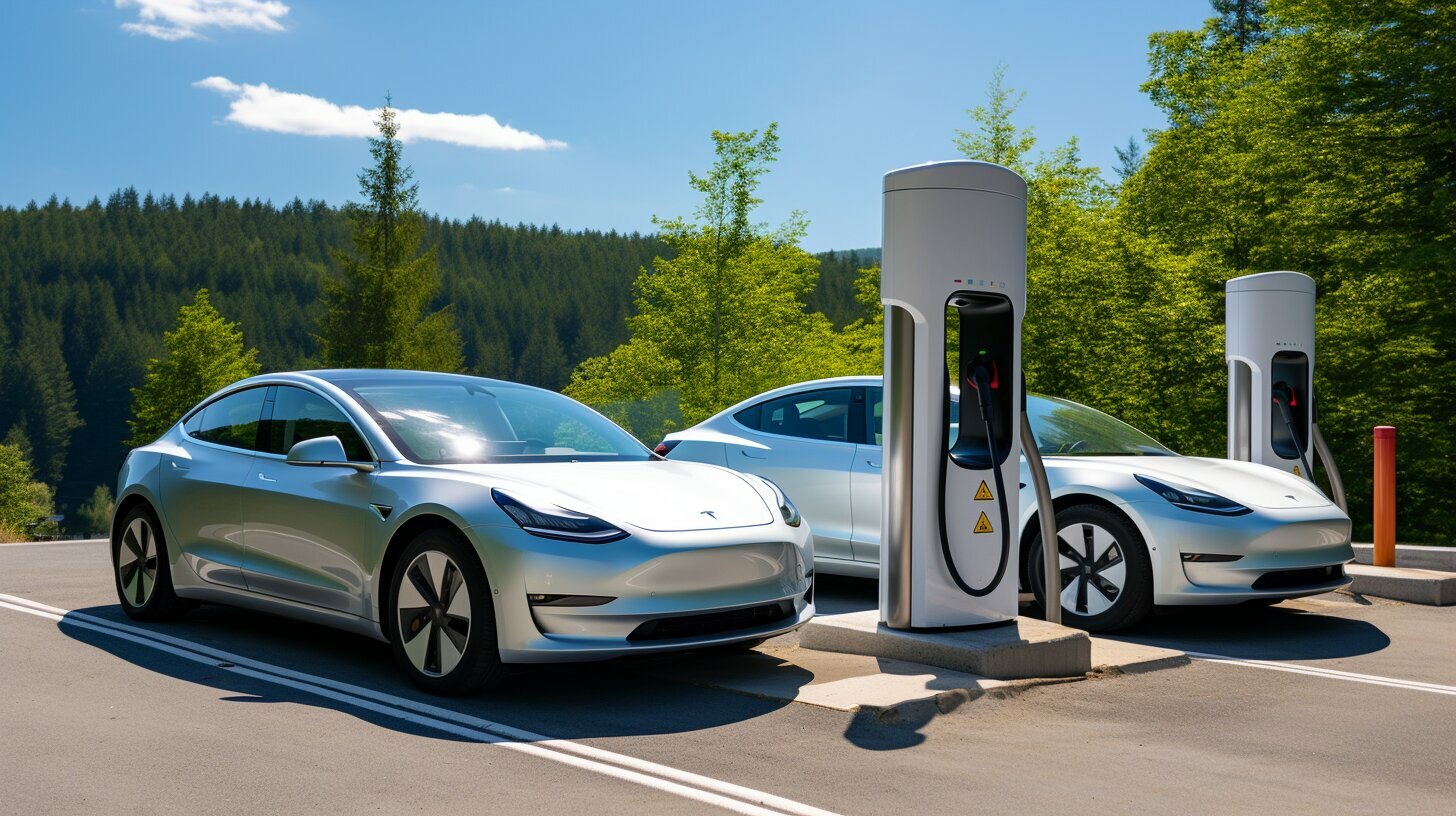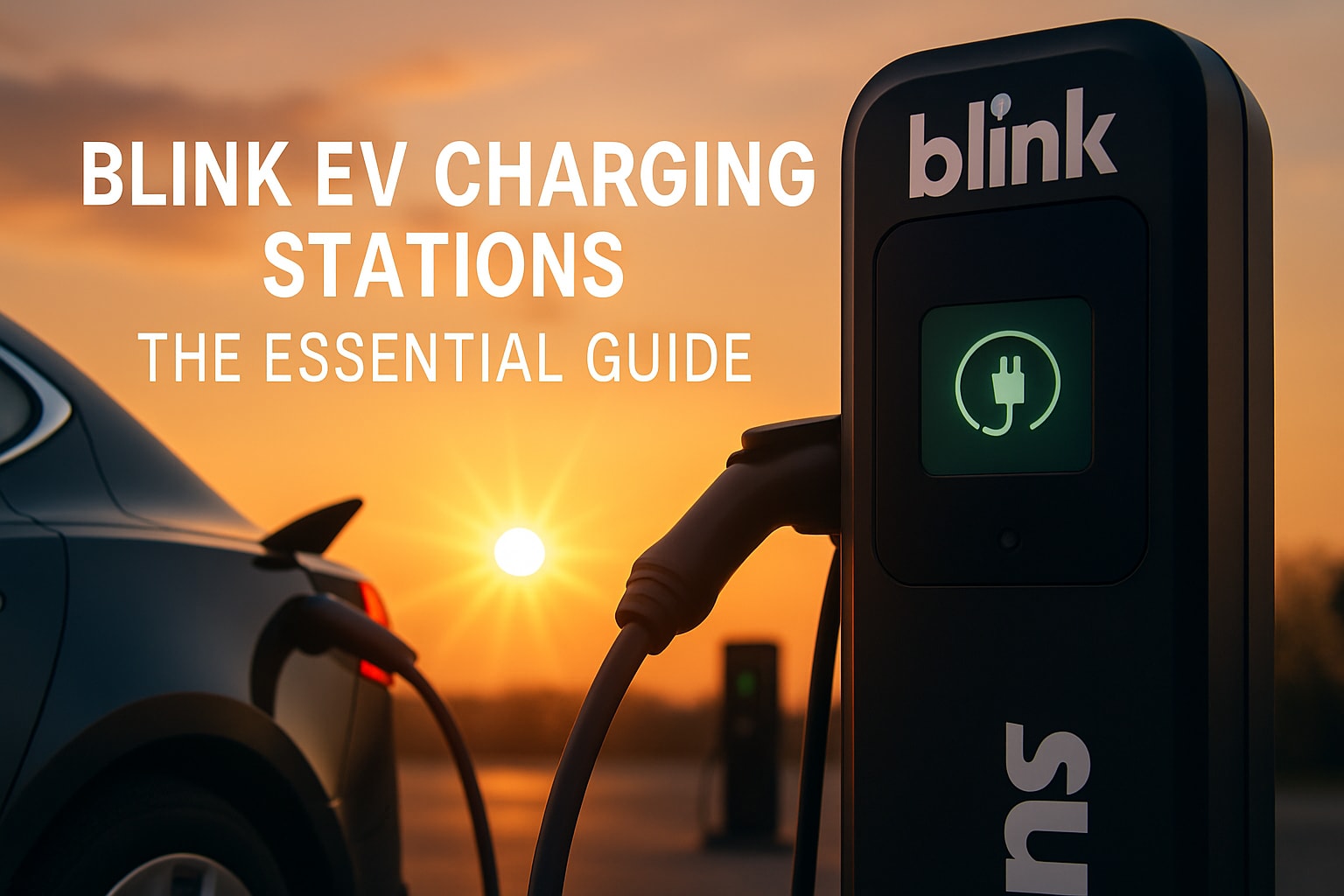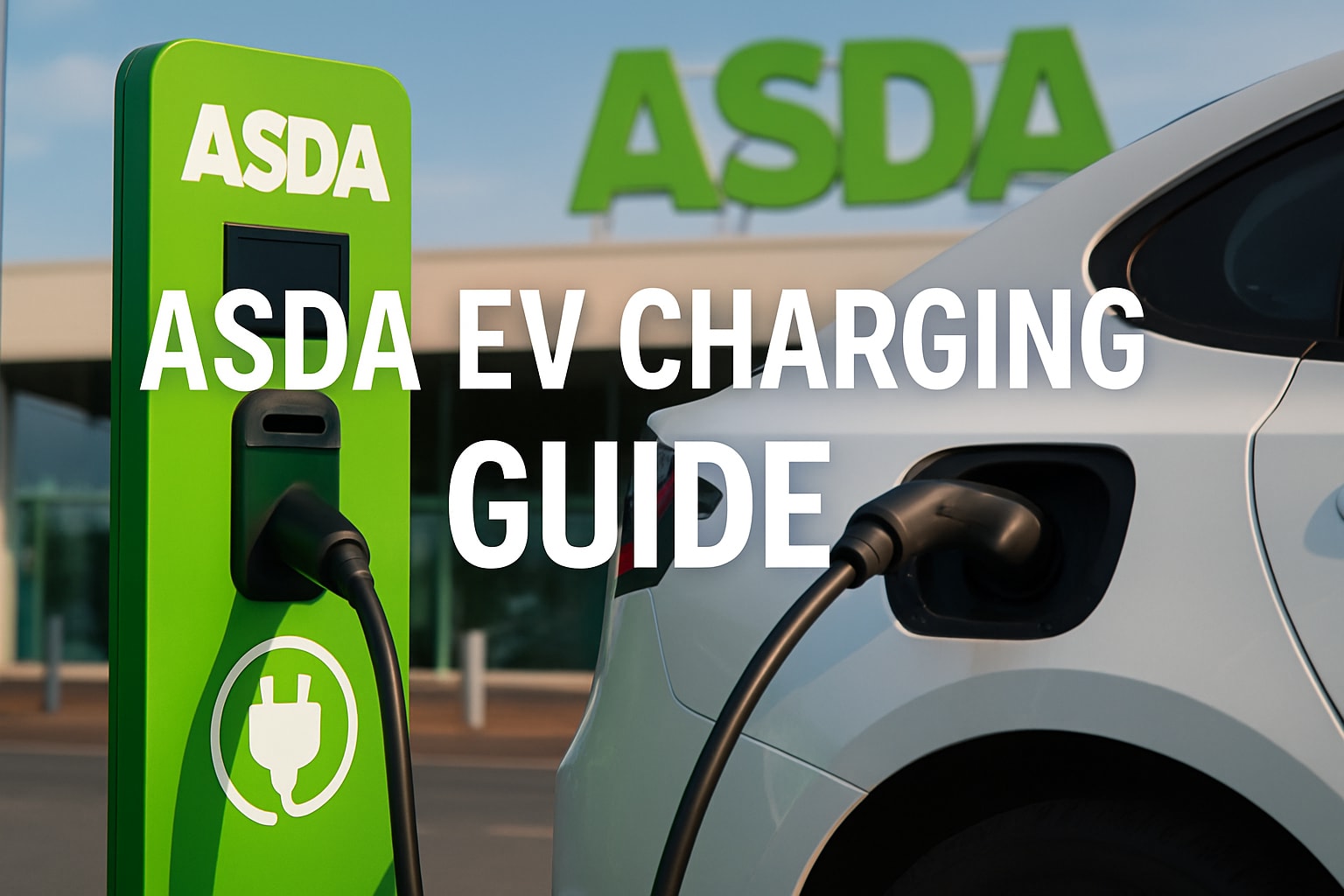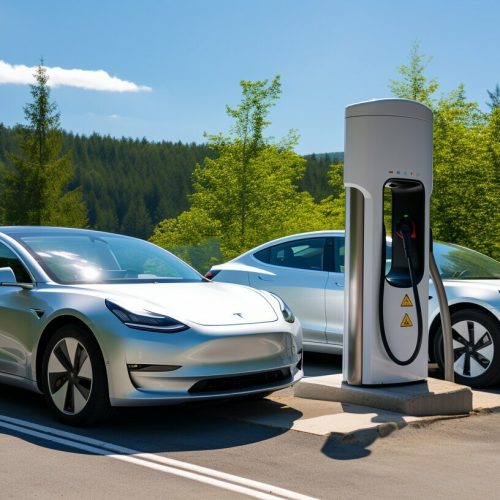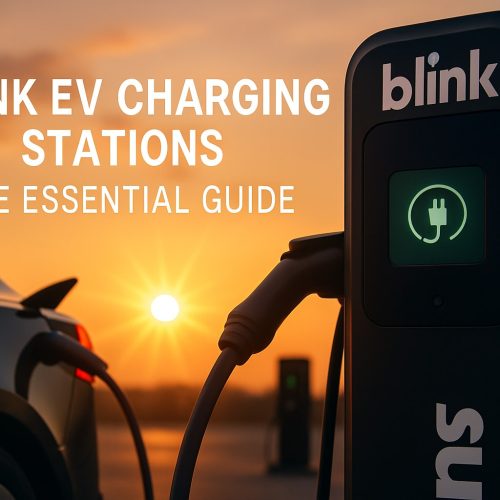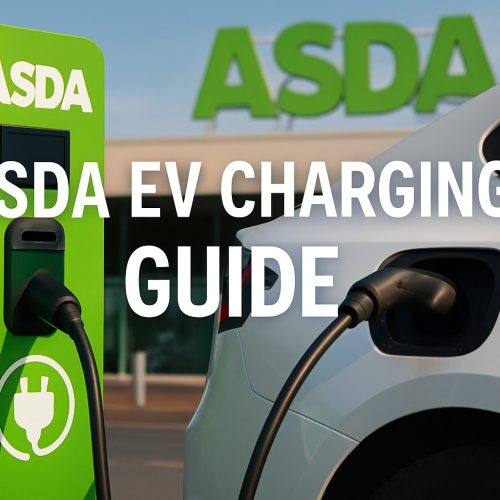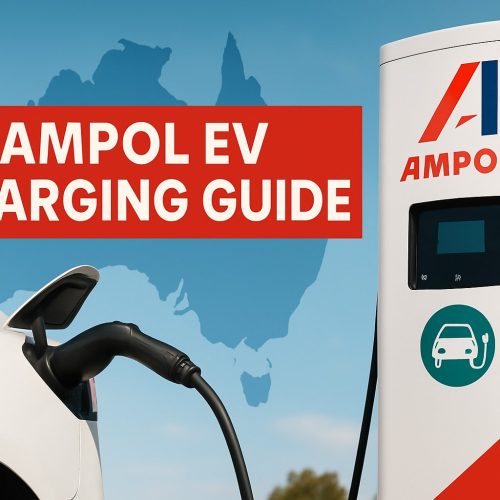Electric cars have been steadily gaining popularity as more people recognize the benefits of converting to electric transportation. As these vehicles become a more common sight on roadways, the reliability of electric cars is a topic of interest and concern for potential buyers. Reliability, in this context, refers to the ability of an electric car to perform consistently without unexpected breakdowns or malfunctions. In this article, we will explore the reliability of electric cars, debunk common misconceptions, and provide insights into the factors influencing their dependability.
Understanding Electric Car Reliability
Reliability is a critical consideration for any vehicle, and electric cars have several advantages in this aspect compared to traditional internal combustion engine (ICE) vehicles. One of the primary reasons for their improved reliability is the simplicity of their mechanical systems. Electric cars have fewer moving parts since they don’t rely on complex internal combustion engines. This reduction in components minimizes the risk of mechanical failures and lowers the overall wear and tear on the vehicle.
Contrary to common misconceptions, electric car batteries are designed to last for a significant amount of time before needing replacement. The typical lifespan of an electric car battery is estimated to be around 8 to 10 years, depending on various factors such as usage patterns, driving conditions, and manufacturer warranties. Additionally, advancements in manufacturing processes and battery technology have resulted in increased battery efficiency and longevity.
Factors Affecting Electric Car Reliability
Several factors can influence the overall reliability of electric cars. Maintenance and servicing play a crucial role in ensuring that electric car components remain in optimal condition. Regular inspections and servicing of the electric motor, drivetrain, and other vital components can prevent potential issues and extend the lifespan of these parts.
Extreme weather conditions can also impact the reliability of electric cars. Extreme cold temperatures can temporarily reduce the range of electric vehicles and affect battery performance. However, manufacturers have implemented various technologies and systems to mitigate these weather-related challenges, such as battery temperature regulation systems and improved insulation.
Another critical factor in determining the reliability of electric cars is the availability and reliability of charging infrastructure. The expansion of charging networks and increased access to charging stations have significantly enhanced the overall reliability and convenience of electric vehicle ownership. However, areas with limited charging infrastructure or unreliable power grids may pose challenges for electric car owners, affecting their overall satisfaction and perceived reliability.
Reliability of Electric Car Components
Electric cars consist of several components that contribute to their overall reliability. The battery is a crucial component that powers the vehicle and determines its range. Advances in battery technology have significantly improved the reliability and performance of electric car batteries. Modern electric vehicles utilize lithium-ion batteries that offer higher energy density, improved efficiency, and longer-lasting performance.
Electric motors and drivetrains are other vital components of an electric car, responsible for converting electrical energy into mechanical power to propel the vehicle. Compared to internal combustion engines, electric motors have significantly fewer moving parts, reducing the risk of mechanical failures. This simplicity contributes to the overall reliability and durability of electric cars.
Charging systems and connectors are essential components for the reliable operation of electric cars. These components facilitate the charging process and ensure compatibility with various charging stations and adapters. Manufacturers have been actively improving the design and reliability of charging systems to optimize charging speeds, enhance safety, and prevent potential connectivity issues.
Table 1: Electric Car Components and Reliability
| Component | Reliability Features |
|---|---|
| Battery | Longevity, high energy density, improved efficiency |
| Electric Motor | Fewer moving parts, reduced risk of mechanical failures |
| Drivetrain | Simplicity of design, enhanced durability |
| Charging Systems | Optimized charging speeds, improved safety and connectivity |
Case Studies: Reliable Electric Car Models
While electric cars, as a whole, have shown improved reliability, some models have stood out in terms of their dependability. Based on real-world data and reviews from drivers and experts, here are some reliable electric car models:
- Tesla Model 3: Known for its impressive range, safety features, and long-term reliability, the Model 3 has garnered praise from owners and industry experts alike.
- Nissan Leaf: With its affordable price point and solid reliability ratings, the Nissan Leaf has been a popular choice for many electric vehicle owners.
- [CheUnderstanding Electric Car Reliability
Reliability is a critical consideration for any vehicle, and electric cars have several advantages in this aspect compared to traditional internal combustion engine (ICE) vehicles. One of the primary reasons for their improved reliability is the simplicity of their mechanical systems. Electric cars have fewer moving parts since they don’t rely on complex internal combustion engines. This reduction in components minimizes the risk of mechanical failures and lowers the overall wear and tear on the vehicle.
Contrary to common misconceptions, electric car batteries are designed to last for a significant amount of time before needing replacement. The typical lifespan of an electric car battery is estimated to be around 8 to 10 years, depending on various factors such as usage patterns, driving conditions, and manufacturer warranties. Additionally, advancements in manufacturing processes and battery technology have resulted in increased battery efficiency and longevity.
Factors Affecting Electric Car Reliability
Several factors can influence the overall reliability of electric cars. Maintenance and servicing play a crucial role in ensuring that electric car components remain in optimal condition. Regular inspections and servicing of the electric motor, drivetrain, and other vital components can prevent potential issues and extend the lifespan of these parts.
Extreme weather conditions can also impact the reliability of electric cars. Extreme cold temperatures can temporarily reduce the range of electric vehicles and affect battery performance. However, manufacturers have implemented various technologies and systems to mitigate these weather-related challenges, such as battery temperature regulation systems and improved insulation.
Another critical factor in determining the reliability of electric cars is the availability and reliability of charging infrastructure. The expansion of charging networks and increased access to charging stations have significantly enhanced the overall reliability and convenience of electric vehicle ownership. However, areas with limited charging infrastructure or unreliable power grids may pose challenges for electric car owners, affecting their overall satisfaction and perceived reliability.
Reliability of Electric Car Components
Electric cars consist of several components that contribute to their overall reliability. The battery is a crucial component that powers the vehicle and determines its range. Advances in battery technology have significantly improved the reliability and performance of electric car batteries. Modern electric vehicles utilize lithium-ion batteries that offer higher energy density, improved efficiency, and longer-lasting performance.
Electric motors and drivetrains are other vital components of an electric car, responsible for converting electrical energy into mechanical power to propel the vehicle. Compared to internal combustion engines, electric motors have significantly fewer moving parts, reducing the risk of mechanical failures. This simplicity contributes to the overall reliability and durability of electric cars.
Charging systems and connectors are essential components for the reliable operation of electric cars. These components facilitate the charging process and ensure compatibility with various charging stations and adapters. Manufacturers have been actively improving the design and reliability of charging systems to optimize charging speeds, enhance safety, and prevent potential connectivity issues.
Table 1: Electric Car Components and Reliability
| Component | Reliability Features |
|---|---|
| Battery | Longevity, high energy density, improved efficiency |
| Electric Motor | Fewer moving parts, reduced risk of mechanical failures |
| Drivetrain | Simplicity of design, enhanced durability |
| Charging Systems | Optimized charging speeds, improved safety and connectivity |
Case Studies: Reliable Electric Car Models
While electric cars, as a whole, have shown improved reliability, some models have stood out in terms of their dependability. Based on real-world data and reviews from drivers and experts, here are some reliable electric car models:
- Tesla Model 3: Known for its impressive range, safety features, and long-term reliability, the Model 3 has garnered praise from owners and industry experts alike. The Model 3 [^tesla-model3] is a popular choice among electric vehicle enthusiasts and showcases Tesla’s commitment to reliability.
- Nissan Leaf: With its affordable price point and solid reliability ratings, the Nissan Leaf [^nissan-leaf] has been a popular choice for many electric vehicle owners. The Leaf’s reliable performance, spacious interior, and practical range make it a practical and reliable option.
- Chevrolet Bolt EV: The Chevrolet Bolt EV [^chevrolet-bolt-ev] is another noteworthy electric car known for its reliability. With its impressive range, practical design, and competitive pricing, the Bolt EV has gained a loyal following among electric car enthusiasts.
While these are just a few examples, it’s important to note that the reliability of electric cars continues to improve across various models and manufacturers. It## Maintaining Electric Car Reliability
To ensure the continued reliability of electric cars, it is essential to follow proper maintenance and servicing practices. Regular maintenance helps identify and address potential issues before they escalate into major problems. Here are some tips and recommendations for maintaining the reliability of electric cars:
- Follow Manufacturer Recommendations: It is crucial to refer to the manufacturer’s guidelines for maintenance and servicing schedules. These recommendations are specifically designed for each electric car model and take into account the unique requirements of electric vehicle components.
- Regular Inspections and Servicing: Regular inspections of key components, such as the electric motor, drivetrain, and charging systems, can help detect any signs of wear or potential issues. Plan for routine servicing, as this will help ensure that all components are operating optimally and prevent any unexpected breakdowns.
- Battery Health Maintenance: The battery is one of the critical components of an electric car, and maintaining its health is vital for overall reliability. Following charging guidelines, avoiding extreme temperature fluctuations, and not fully depleting the battery frequently can help maximize its lifespan. Also, be aware of any battery recall or software updates provided by the manufacturer.
- Proper Charging Habits: Adopting proper charging habits can also contribute to the reliability of an electric car. Avoid frequently “fast charging” the vehicle, as this can put additional strain on the battery and potentially lead to decreased lifespan over time. Opting for slower, regular charging whenever possible is recommended.
- Battery Degradation and Range Anxiety: Over time, it is natural for electric car batteries to experience some degree of degradation, which may lead to a reduced driving range. However, the rate of degradation is relatively slow, and modern electric car batteries are designed to maintain a high level of performance throughout their lifespan. Being aware of the estimated range and charging availability in your regular driving patterns can mitigate any potential range anxiety.
By following these maintenance guidelines, electric car owners can maximize the reliability and longevity of their vehicles. It is also important to stay informed about any software updates or recalls that the manufacturer may issue to ensure the vehicle operates optimally.
Conclusion
Electric cars have come a long way in terms of reliability and are continually improving. Their simpler mechanical systems, coupled with advancements in battery and charging technology, have made them a reliable and viable transportation option. Reliability concerns, often associated with misconceptions or outdated information, are being addressed and overcome by both manufacturers and the growing electric vehicle ecosystem.
In this article, we delved into the factors affecting the reliability of electric cars, such as maintenance, extreme weather conditions, and charging infrastructure. We also explored the reliability of key components, including batteries, electric motors, drivetrains, and charging systems.
By looking at case studies of reliable electric car models such as the Tesla Model 3, Nissan Leaf, and Chevrolet Bolt EV, we demonstrated that electric cars are indeed capable of providing a reliable and satisfying driving experience.
To maintain the reliability of electric cars, following manufacturer recommendations for maintenance, regular inspections, and servicing are crucial. Proper charging habits and understanding battery degradation can also contribute to a reliable driving experience.
As the infrastructure and technology for electric cars continue to evolve, the reliability and convenience of electric transportation will only improve. Electric cars present an exciting and reliable future for personal transportation, contributing to a cleaner and more sustainable world.
Key Takeaways
- Electric cars have advantages in terms of reliability compared to traditional internal combustion engine vehicles due to their simpler mechanical systems, leading to fewer potential failures and reduced wear and tear.
- Electric car batteries are designed to last around 8 to 10 years, depending on usage patterns and driving conditions. Advancements in battery technology have improved efficiency and longevity.
- Factors that can affect electric car reliability include maintenance and servicing, extreme weather conditions, and the availability and reliability of charging infrastructure.
- Electric car components such as batteries, electric motors, drivetrains, and charging systems have specific reliability features that contribute to overall dependability.
- Reliable electric car models include the Tesla Model 3, Nissan Leaf, and Chevrolet Bolt EV, which have been praised for their range, safety features, and long-term reliability.
- Maintaining electric car reliability involves following manufacturer recommendations for maintenance and servicing, regular inspections of key components, battery health maintenance, proper charging habits, and understanding battery degradation.
- The reliability of electric cars continues to improve with advancements in technology, making them a reliable and sustainable transportation option for the future.
